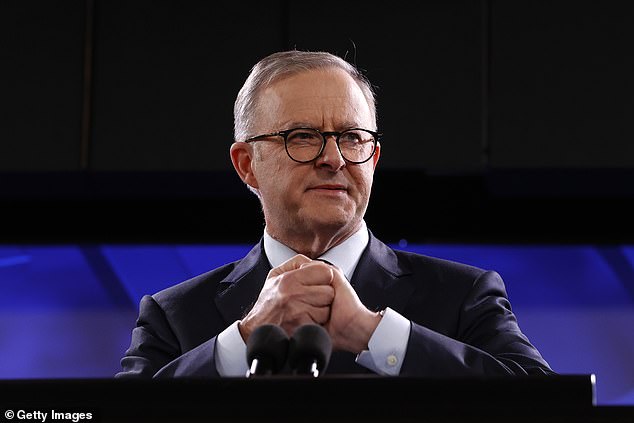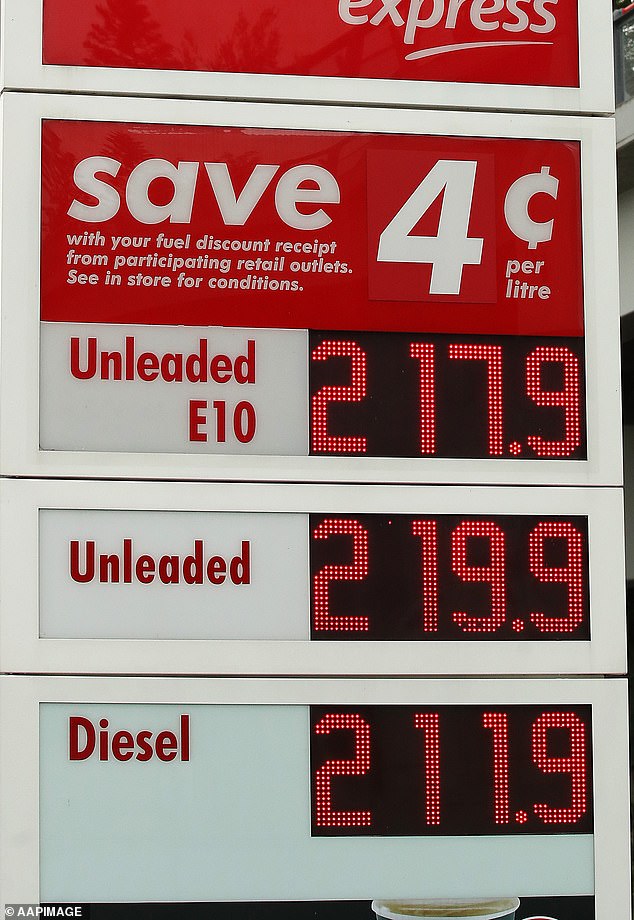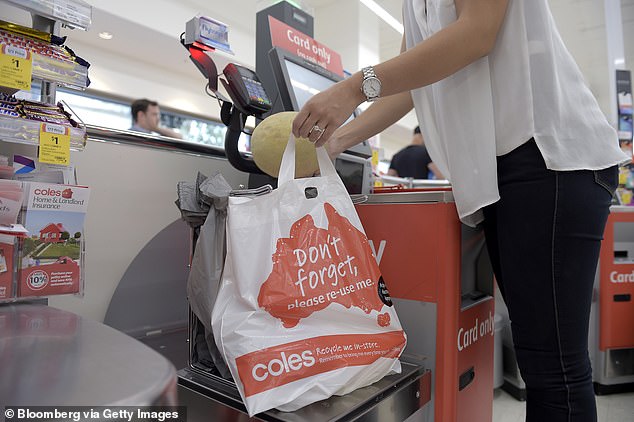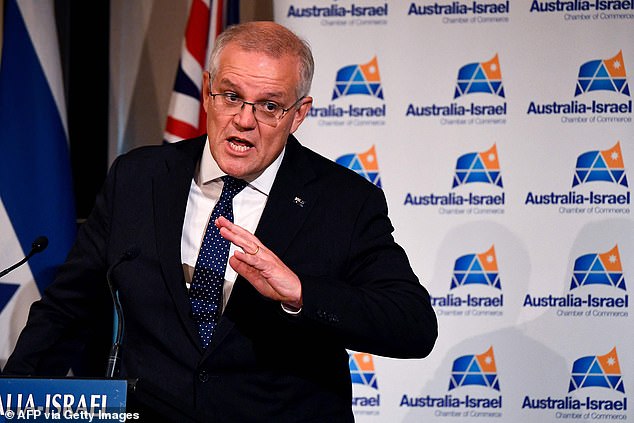Prime Minister Scott Morrison blames Australia’s cost of living crisis on inflation, which he says is out of his control.
But wages are lagging far behind the inflation rate, Australian Bureau of Statistics data shows.
The annual rate was 2.4 percent, less than half the inflation rate of 5.1 percent, according to figures released Wednesday.
Prime Minister Scott Morrison (pictured) blames Australia’s cost of living crisis on inflation, which he says is out of his control, but said Labor policies would only drive up prices further.
Opposition leader Anthony Albanese said good government helps wages rise, not fall backwards.
Australian workers are paying for a decade of bad policies and economic failures, he said.
‘What a success. “This implies the biggest cut in real wages in more than 20 years,” he told the National Press Club on Wednesday after the wage data was released.
“Under Scott Morrison, real wages are plummeting while living costs are soaring.”
But Morrison said low unemployment would lead to wage increases.
‘But inflation is the challenge and that’s why, when it comes to things like this, you have to know what things you can’t control: global events, global forces, wars in Europe, supply chain disruptions and the pandemic.’, he said during a speech in Melbourne.

Anthony Albanese (pictured) said the Coalition is to blame for skyrocketing prices, which are far ahead of wage growth, leaving millions of Australians feeling the pain in their pockets.
Australians could not risk electing an opposition whose policies would increase inflation, the prime minister said.
“A shadow treasurer who thinks you can have a few billion dollars scattered around freely and it’s no big deal, well, that’s a big risk for you,” he said.
But Albanese said Labor policies put productivity at the center of increasing profits and wages without increasing inflation.
Meanwhile, pay data showed workers would lose $4,000 in 2022, Australian unions’ peak body said.
“Australian workers are being forced to cut spending on even the most essential items,” Australian Council of Trade Unions secretary Sally McManus said.
“It is disgraceful that the Morrison government refuses to support a dollar an hour for minimum wage workers.”

The Prime Minister has blamed global events, global forces, wars in Europe, disruption of supply chains and the Covid pandemic for sharp price rises, such as at the petrol pumps.
The Fair Work Commission is reviewing the minimum wage, which the Labor Party wants to keep up with the rate of inflation.
Labor campaign spokesman Tony Burke said on Saturday that without a change of government he would not expect Australians to get a pay rise.
‘The government wants to keep wages low. “What we will do… is, at every turn we can, help put upward pressure on wages,” he told reporters in Canberra.
Labor is due to publish electoral policy costs on Thursday and shadow treasurer Jim Chalmers said the Prime Minister was not being honest about what they would show.

New figures reveal wages are growing at an annual rate of 2.4 per cent, which is less than half the inflation rate of 5.1 per cent, meaning many Australians are facing tough times at the checkout.
“If this government spent as much time on its own budget as it does making up stories about ours, then maybe it would have something to show for the trillion dollars in debt it has accumulated in its debt-ridden, wasteful budget.” he told AAP.
The government costs, released Tuesday, total $2.3 billion and will be paid for by raising the public service efficiency dividend to 2 percent, from 1.5 percent, raising about $1 billion. additional for a total of 2.7 billion dollars.
Almost six million Australians have already cast their vote or requested a postal vote.
Meanwhile, two new polls show the election race has narrowed in favor of the coalition ahead of voting day on Saturday, although Labor is still in the lead on a two-party preference basis.
A Resolve Strategic poll conducted for Nine newspapers shows Labor leading 51 per cent to 49 per cent, compared to 54 to 46 two weeks ago.
An Essential poll published by The Guardian on Wednesday found Labor on 48 per cent compared to the coalition’s 46 per cent, up from 49-45 a fortnight ago, with the rest of voters undecided.

